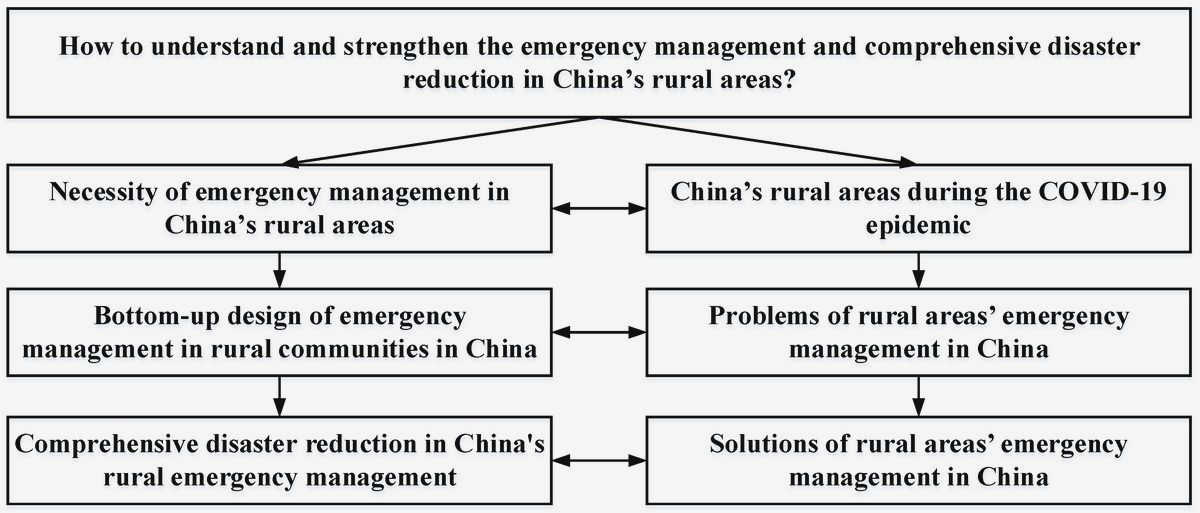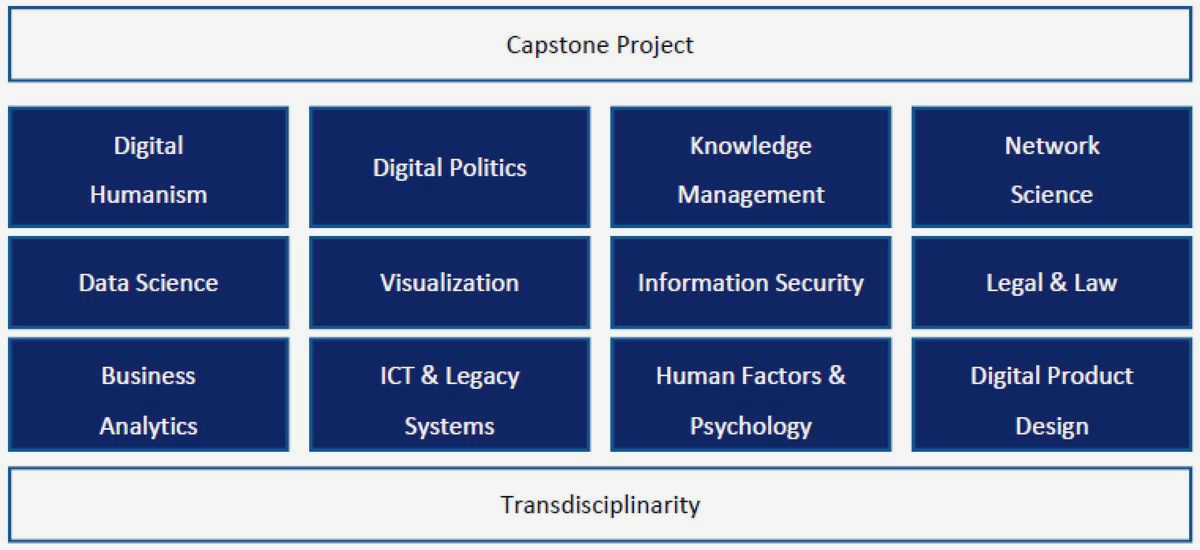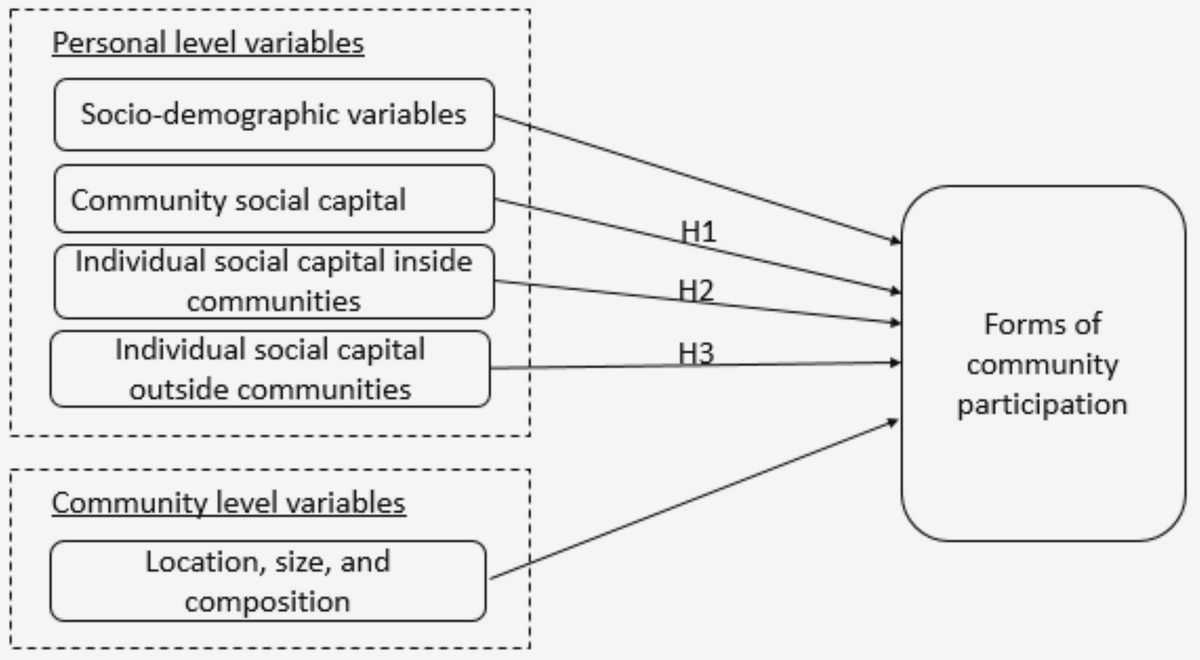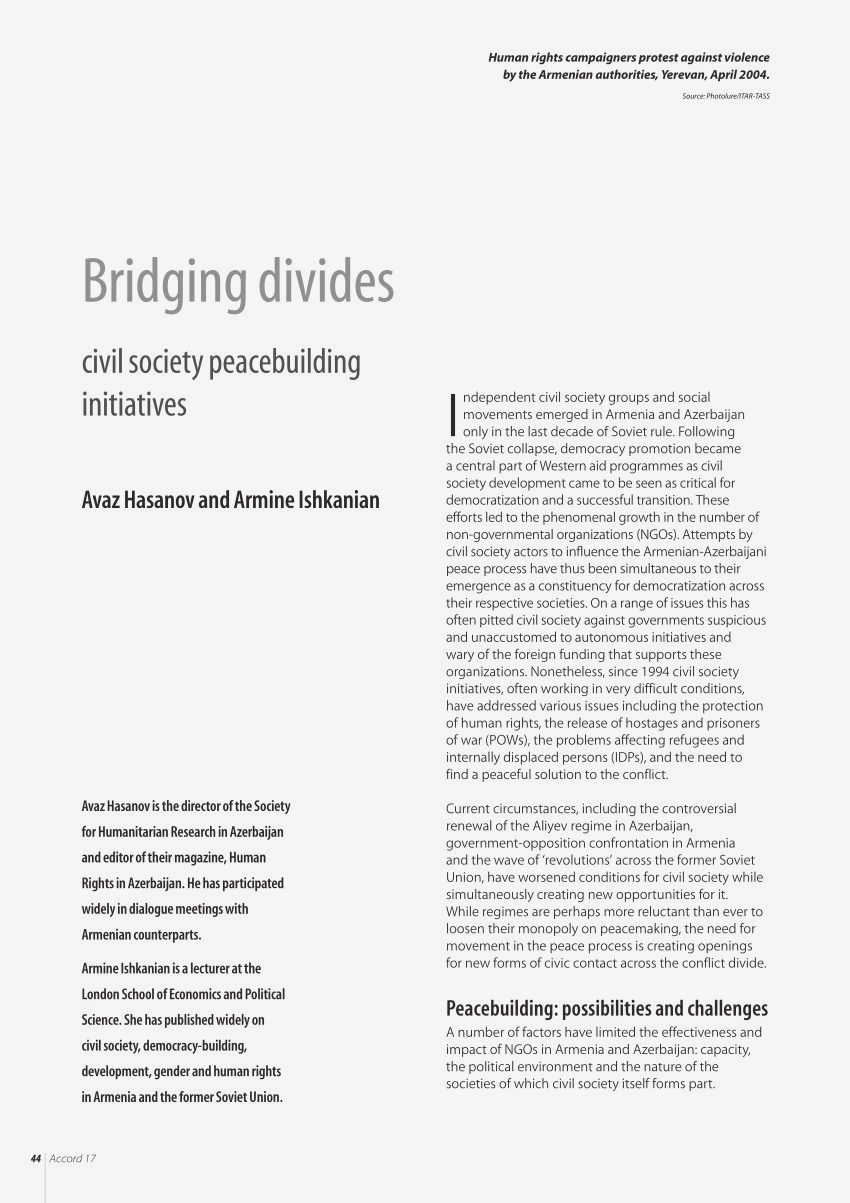In today’s increasingly polarized world, it is more important than ever to find ways to bridge the divides that separate communities. Civil society, comprised of organizations and individuals outside of the government and business sectors, plays a crucial role in this effort. Through their various initiatives and programs, civil society organizations work to strengthen communities and foster unity.
Civil society fills the gaps left by government and businesses, addressing issues that are often overlooked or neglected. These organizations focus on a wide range of areas, including education, healthcare, poverty alleviation, environmental conservation, and human rights. By addressing these pressing challenges, civil society efforts contribute to the overall well-being and development of communities, helping to create a more inclusive and equitable society.
One of the key ways in which civil society strengthens and unifies communities is through promoting dialogue and understanding. By bringing together individuals from diverse backgrounds and perspectives, civil society initiatives encourage open communication, allowing for the exchange of ideas and the building of relationships. This helps to break down barriers and dispel stereotypes, fostering greater empathy and cooperation among community members.
Furthermore, civil society plays a crucial role in advocating for marginalized groups and promoting social justice. These organizations work to amplify the voices of those who are often excluded or marginalized, ensuring that their rights and needs are met. By championing equality and inclusivity, civil society organizations work to create a more just and cohesive society.
Overall, civil society organizations serve as a vital bridge, connecting individuals and communities, and working towards a more unified and harmonious society. Through their various efforts, they address pressing challenges, foster dialogue and understanding, and advocate for a more inclusive and equitable society. By recognizing the importance of civil society in bridging divides, we can all contribute to building stronger and more resilient communities.
Understanding Civil Society
Civil society is a crucial component of any thriving community. It encompasses a wide range of non-governmental organizations, associations, and groups that operate independently from the government or private sector. These organizations play a vital role in bridging divides and strengthening communities by addressing social, cultural, economic, and political issues.
Participation and Engagement: Civil society encourages active participation and engagement, giving individuals a platform to voice their opinions, concerns, and aspirations. Through various channels such as community forums, public consultations, and grassroots initiatives, civil society organizations empower individuals to contribute to decision-making processes and shape the future of their communities.
Civic Education and Awareness:
Another important aspect of civil society is its role in promoting civic education and awareness. Civil society organizations often organize workshops, seminars, and awareness campaigns to educate community members about their rights, responsibilities, and the importance of active citizenship. By equipping individuals with knowledge and skills, civil society fosters an informed and engaged citizenry.
Social Services and Welfare:
Additionally, civil society organizations provide essential social services and support to marginalized groups and underserved communities. This includes initiatives related to healthcare, education, poverty alleviation, environmental conservation, and much more. Through their efforts, civil society organizations bridge divides by improving access to opportunities and resources for all members of the community, regardless of their background or circumstances.
Advocacy and Policy Influence: Advocacy is a key role of civil society organizations. They work to influence policies, laws, and regulations by advocating for the rights and interests of their communities. By bringing attention to specific issues, raising public awareness, and engaging with decision-makers, civil society organizations play a crucial role in shaping policies that promote inclusivity, justice, and equality.
In summary, civil society is an essential force in strengthening and unifying communities. Through participation and engagement, civic education, social services, and advocacy, civil society organizations bridge divides, empower individuals, and contribute to the well-being and progress of society as a whole.
The Importance of Community Engagement
Community engagement plays a vital role in bringing people together, fostering a sense of belonging, and strengthening the overall fabric of society. When individuals actively participate in their communities, they have the opportunity to connect with others, share ideas, and work towards common goals. This engagement not only promotes social cohesion but also empowers individuals to take ownership of their communities and have a voice in decision-making processes.
One key benefit of community engagement is the promotion of inclusivity. When people from diverse backgrounds come together, they bring different perspectives and experiences, leading to a more enriching and well-rounded community. By engaging with one another, individuals can challenge their own biases and assumptions, fostering understanding and empathy. This inclusive environment creates a space where everyone feels valued and contributes to the overall strength and unity of the community.
Community engagement also plays a crucial role in addressing local issues and driving positive change. By actively participating in community initiatives and organizations, individuals can identify pressing needs within their neighborhoods and work collaboratively to find solutions. Whether it’s volunteering at a local shelter, participating in clean-up campaigns, or advocating for policy changes, community engagement allows individuals to make a meaningful impact and create lasting change.
Furthermore, community engagement has a ripple effect on the well-being of individuals. When people feel connected to their communities and have a sense of purpose, they experience improved mental health and overall life satisfaction. Actively engaging in community activities provides opportunities for personal growth, the development of new skills, and the formation of supportive networks. It can also strengthen social ties and foster a sense of pride and belonging, creating a more resilient and united community as a result.
To sum up, community engagement is crucial for bridging divides and strengthening communities. It promotes inclusivity, drives positive change, improves well-being, and empowers individuals to become active contributors to their communities. By fostering a sense of belonging and unity, community engagement establishes a solid foundation for a more harmonious and prosperous society.
Fostering Social Inclusion and Diversity
Social inclusion and diversity are vital components for building strong and unified communities. By fostering social inclusion, we ensure that every individual feels valued, respected, and included in the social fabric of the community. This means actively engaging with individuals from diverse backgrounds, including different races, ethnicities, religions, genders, and abilities.
In order to foster social inclusion and diversity, it is important to promote equal opportunities for all individuals. This can be done through educational programs and initiatives that aim to address the barriers that marginalized groups face. By providing access to quality education and opportunities for skill development, we empower individuals to fully participate in society and contribute their unique perspectives and talents.
Another important aspect of fostering social inclusion and diversity is creating spaces for dialogue and interaction between different groups. This can be achieved through community events, workshops, and forums that encourage open and respectful discussions. By creating opportunities for individuals to learn from each other and share their experiences, we can break down stereotypes and build mutual understanding and empathy.
Additionally, businesses and organizations have a responsibility to actively promote diversity and inclusion in the workplace. This can be done by implementing inclusive hiring practices, providing employee training on diversity and inclusion, and creating a safe and supportive work environment for all individuals. By embracing diversity in the workplace, organizations can benefit from the different perspectives and ideas that individuals from diverse backgrounds bring.
In conclusion, fostering social inclusion and diversity is crucial for strengthening and unifying communities. By promoting equal opportunities, creating spaces for dialogue, and embracing diversity in the workplace, we can ensure that every individual feels valued and included. By celebrating and embracing our differences, we can build stronger, more resilient communities that are united in their diversity.

Promoting Equality and Justice
Advocacy for equal rights
Civil society plays a crucial role in promoting equality and justice by advocating for the equal rights of all individuals, regardless of their race, ethnicity, gender, or socioeconomic status. Organizations and activists work tirelessly to raise awareness about systemic inequalities and advocate for policies and legislation that promote equal opportunities for everyone.

Providing legal support
To ensure that justice is served, civil society organizations often provide legal support to marginalized communities who may not have access to legal representation. They offer pro bono services, legal aid clinics, and initiatives to educate individuals about their rights, empowering them to seek justice for any discrimination or injustice they may face.
Creating inclusive spaces
In order to promote equality and justice in society, civil society organizations strive to create inclusive and safe spaces where individuals from diverse backgrounds can come together. These spaces provide opportunities for dialogue, understanding, and collaboration, helping to bridge divides and promote empathy among individuals with different perspectives and experiences.
Advancing policy change
Civil society organizations work to advance policy changes that promote equality and justice. They engage in lobbying, advocacy, and grassroots campaigns to influence policymakers and push for legislative reforms that protect the rights of marginalized groups and promote inclusivity in all aspects of society. By partnering with other stakeholders, civil society plays a critical role in shaping policies that address systemic inequalities and promote social justice.
Addressing structural barriers
Civil society initiatives often focus on addressing and dismantling structural barriers that perpetuate inequality and injustice. By conducting research, raising awareness, and implementing targeted interventions, these organizations work towards creating more equitable systems and institutions. They advocate for changes in education, healthcare, employment, and other sectors to ensure equal opportunities for all and challenge the systemic biases that hinder the progress of marginalized communities.
Building Trust and Collaboration
In order to bridge divides and strengthen communities, it is crucial to build trust and foster collaboration among individuals and groups with different backgrounds and perspectives.
Fostering Dialogue and Communication
One key step towards building trust and collaboration is fostering open dialogue and effective communication. This involves creating spaces where individuals feel comfortable expressing their views and actively listening to others. Encouraging respectful and constructive conversations helps to break down barriers and misconceptions, leading to a better understanding of diverse perspectives and shared values.
Promoting Inclusivity and Equality
Another important aspect of building trust and collaboration is promoting inclusivity and equality. This means creating an environment where everyone feels valued and has an equal opportunity to participate and contribute. By ensuring that all voices are heard and respected, irrespective of gender, race, ethnicity, or socioeconomic status, trust can be established, and collaboration can thrive.
Establishing Shared Goals and Objectives
Building trust and collaboration also requires the establishment of shared goals and objectives. When individuals and groups have a common purpose, they are more likely to work together towards achieving it. Setting clear and meaningful objectives helps to align the efforts of different stakeholders and fosters a sense of unity and shared responsibility.
Strengthening Networks and Partnerships
Lastly, building trust and collaboration can be enhanced through the strengthening of networks and partnerships. By actively seeking opportunities to connect with other organizations and community groups, individuals and civil society organizations can leverage their collective resources and expertise to address common challenges. Collaborative efforts help to build trust and increase the effectiveness of community initiatives.
In conclusion, building trust and collaboration is essential for bridging divides and strengthening communities. Initiatives that foster dialogue, promote inclusivity and equality, establish shared goals, and strengthen networks and partnerships are instrumental in creating resilient and unified communities.
Empowering Individuals and Groups
Empowering individuals and groups is a fundamental aspect of civil society’s role in bridging divides and strengthening communities. By providing resources, support, and knowledge, civil society organizations help individuals and groups develop the skills and confidence to participate actively in their communities.
Access to Resources and Opportunities
Civil society organizations play a vital role in empowering individuals and groups by providing access to resources and opportunities. This can include financial assistance, educational programs, training workshops, and networking events. By equipping individuals and groups with the necessary resources, civil society organizations enable them to overcome barriers and maximize their potential.
Promoting Active Citizenship
Civil society organizations also empower individuals and groups by promoting active citizenship. This involves encouraging and supporting individuals to take an active role in decision-making processes, advocating for their rights, and participating in community initiatives. By empowering individuals and groups to become active citizens, civil society organizations foster a sense of ownership and responsibility, which promotes unity and strengthens communities.
Building Networks and Collaborations
Another way civil society organizations empower individuals and groups is by facilitating connections and collaborations. By bringing together like-minded individuals and organizations, promoting dialogue and networking opportunities, civil society organizations create spaces where individuals and groups can share their experiences, knowledge, and ideas. This not only empowers individuals and groups but also fosters collaboration and cooperation, leading to stronger and more unified communities.

Educating and Raising Awareness
Civil society organizations empower individuals and groups by educating and raising awareness about important issues and challenges. By providing information, conducting educational campaigns, and organizing awareness events, civil society organizations empower individuals and groups with knowledge and understanding. This helps individuals and groups make informed decisions, take action, and contribute to positive change in their communities.
Advocacy and Representation
Finally, civil society organizations empower individuals and groups by advocating for their rights and representing their interests. Through lobbying efforts, advocacy campaigns, and legal support, civil society organizations give individuals and groups a platform to voice their concerns, address systemic inequalities, and hold decision-makers accountable. This empowers individuals and groups to have their voices heard and work towards creating inclusive and equitable communities.
Enhancing Civic Education and Awareness
In order to bridge divides and strengthen communities, it is crucial to enhance civic education and awareness. Civic education plays a significant role in shaping individuals’ understanding of their rights and responsibilities as citizens, as well as their knowledge of the democratic processes and institutions. By providing comprehensive and accessible civic education, we can empower individuals to actively engage in their communities and contribute to positive change.
1. Promoting civic education in schools: One way to enhance civic education is by incorporating it into the school curriculum. By introducing topics such as democracy, human rights, and civic participation early on, we can help young people develop a strong foundation of civic knowledge and values. This can be achieved through interactive and engaging teaching methods, such as role-playing exercises, debates, and community service projects.
2. Engaging local community organizations: Local community organizations can play a vital role in enhancing civic education and awareness. These organizations can organize workshops, seminars, and public forums to educate community members about their rights, responsibilities, and the importance of active citizenship. Additionally, they can collaborate with schools, libraries, and other institutions to provide resources and support for civic education initiatives.
3. Utilizing technology and online platforms: With the increasing use of technology and online platforms, it is essential to leverage these tools to enhance civic education and awareness. Online resources, such as interactive websites, videos, and e-learning platforms, can make civic education more accessible and engaging. Moreover, social media platforms can be used to disseminate information, raise awareness about civic issues, and encourage dialogue and participation.
4. Encouraging community engagement: In addition to providing civic education, it is crucial to encourage community members to actively engage in their communities. This can be achieved through community outreach programs, volunteer opportunities, and participation in local decision-making processes. By actively involving community members in community-building activities, we can foster a sense of belonging, unity, and shared purpose.
In conclusion, enhancing civic education and awareness is essential for bridging divides and strengthening communities. By promoting civic education in schools, engaging local community organizations, utilizing technology and online platforms, and encouraging community engagement, we can empower individuals to become active, informed, and responsible citizens who can contribute to the betterment of their communities.
Creating Opportunities for Dialogue and Debate
One of the key roles that civil society plays in bridging divides is creating opportunities for dialogue and debate. By providing platforms and spaces for people with different perspectives and backgrounds to come together, civil society organizations encourage open and honest discussions about important issues.
Facilitating dialogue and debate
Civil society organizations organize events such as panel discussions, town hall meetings, and community forums where individuals can come together to discuss their views on various topics. These events allow for a respectful exchange of ideas and opinions, promoting understanding and empathy among participants.
Building bridges between communities
Through dialogue and debate, civil society organizations can help build bridges between communities that may have different cultural, social, or political backgrounds. By creating a space where people can interact with one another, these organizations foster mutual respect and appreciation for diversity.
Encouraging active participation
Civil society organizations also encourage active participation in dialogue and debate by providing training and resources to individuals who wish to engage in constructive discussions. By equipping individuals with the necessary skills and knowledge, these organizations empower people to be active contributors to their communities and society as a whole.
Using technology for dialogue
With the advancement of technology, civil society organizations are also using online platforms and social media to create opportunities for dialogue and debate. These platforms allow for discussions to take place beyond physical boundaries and reach a wider audience, enabling diverse perspectives to be heard.
- Promoting understanding and reconciliation
Ultimately, creating opportunities for dialogue and debate through civil society efforts helps promote understanding and reconciliation. It enables individuals to break down barriers and stereotypes, fostering a sense of unity and common purpose in communities.
Addressing Social and Environmental Challenges
Social Challenges:
When it comes to addressing social challenges, civil society plays a crucial role in promoting social justice, equality, and inclusion. Non-governmental organizations (NGOs) often work on the ground to provide support and resources to marginalized communities, advocating for their rights and empowering individuals to create positive change. Through their initiatives and programs, civil society organizations work towards reducing poverty, improving access to education and healthcare, promoting gender equality, and combating discrimination and social exclusion.
Environmental Challenges:
Addressing environmental challenges is another area where civil society plays a significant role. Environmental NGOs work tirelessly to protect our planet’s resources and biodiversity. They raise awareness about climate change, promote sustainable practices, and advocate for policies that conserve and protect our ecosystems. Civil society organizations also engage in environmental education, empowering individuals and communities to take action to reduce their ecological footprint and promote a more sustainable future.
Collaboration and Partnership:
To effectively address both social and environmental challenges, collaboration and partnership between civil society organizations, governments, and the private sector are crucial. By working together, these stakeholders can pool their resources, knowledge, and expertise to develop innovative solutions and create lasting impact. Collaboration also helps to build trust and strengthen relationships between different sectors, fostering a collective sense of responsibility and commitment to addressing the most pressing challenges facing our society and environment.
Advocacy and Policy Change:
Civil society organizations also play a vital role in advocating for policy changes that address social and environmental challenges. Through research, lobbying, and raising public awareness, these organizations can influence decision-makers and push for policies and laws that prioritize social justice, human rights, and environmental sustainability. By advocating for systemic changes, civil society helps to create an enabling environment where individuals and communities can thrive and where our planet can be protected for future generations.
Community Mobilization and Grassroots Activism:

Civil society organizations excel in mobilizing communities and fostering grassroots activism. By engaging with local communities, civil society enables collective action and empowers individuals to drive change in their own neighborhoods. Grassroots activism can create a ripple effect, inspiring others to join the movement and amplifying the impact of initiatives aimed at addressing social and environmental challenges. Through community mobilization, civil society helps to build stronger, more resilient communities that are equipped to address the complex challenges they face.
The Future of Civil Society
The future of civil society is filled with both challenges and possibilities. As the world becomes more interconnected and globalized, civil society organizations will play a critical role in bridging divides and strengthening communities.
1. Embracing Technology
In the future, civil society organizations will need to embrace technology to effectively reach and engage with diverse communities. Digital platforms and social media will be vital tools for connecting individuals and mobilizing collective action. Additionally, advancements in technology such as artificial intelligence and big data analytics can help organizations better understand the needs and preferences of the communities they serve.
2. Promoting Inclusivity
The future of civil society will prioritize inclusivity and diversity. Organizations will need to actively work towards creating spaces and opportunities for marginalized groups to participate and contribute. This could involve implementing policies that promote diversity within organizations, engaging with community leaders from different backgrounds, and providing resources and support to underrepresented communities.
3. Strengthening Collaboration
In an increasingly interconnected world, civil society organizations will need to collaborate and co-create to address complex social issues. This could involve forming partnerships with other organizations, sharing resources and knowledge, and leveraging collective expertise to create more effective and sustainable solutions. Collaboration can also help bridge divides between different sectors, such as government, business, and academia, to foster more holistic and inclusive approaches to community development.
4. Adapting to Changing Demographics
As demographics continue to shift, civil society organizations will need to adapt their strategies and approaches to effectively cater to the needs of changing communities. This could involve developing cultural competency, creating programs and services that are tailored to specific demographic groups, and actively seeking out and listening to the voices of those who have been historically marginalized or underrepresented.
In conclusion, the future of civil society holds immense potential for strengthening and unifying communities. By embracing technology, promoting inclusivity, strengthening collaboration, and adapting to changing demographics, civil society organizations can continue to play a vital role in bridging divides and creating a more equitable and sustainable future.





